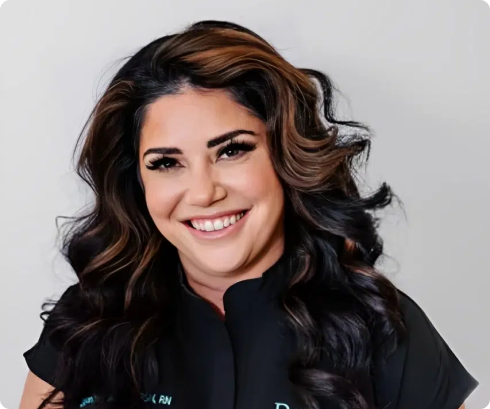For those who want to enhance the look of their buttocks and boost their confidence, Brazilian butt lift, or BBL, has become a popular choice. Well-known celebrities and countless social media influencers have fueled the trend, showing off dramatic results that highlight curves and boost self-esteem.
However, not all conversations about this procedure are about the results, and one topic that has been circulating online is the so-called “BBL smell.” People who have undergone the surgery have shared concerns about an unusual or unpleasant odor during the healing process.
And for many, it raises an important question: Do BBLs stink?
According to a member of the American Society of Plastic Surgeons, there are indeed patients who experience this odor. It is not caused by the surgery itself but by what happens during recovery. The healing process can create conditions where odor develops, and while this is not universal, it is real for some patients.
It is also important to point out that this side effect only happens with surgical BBL. Nonsurgical BBL procedures, which use injectables like dermal fillers to add volume, do not carry this issue.
If the concern about odor has made you hesitate, keep reading. We will go over what causes BBL smell, how to prevent it, and when to talk to a doctor. On top of that, we’ll also show you how you can take advantage of the benefits of Brazilian butt lift without dealing with unpleasant odors.
Yes, as mentioned, some patients who undergo BBL surgery do experience odor. To understand why, it helps to know what the surgery involves.
A surgical BBL includes two main steps. First, liposuction is performed to remove excess fat from areas like the abdomen, flanks, or thighs. That harvested fat is then purified and injected into the buttocks to create more volume and a rounded shape. While the results can be dramatic, the healing process takes time because both the liposuction areas and the buttocks need to recover.
The procedure itself does not produce odor. Instead, odor sometimes develops during recovery. This is often related to how the body responds while healing, how well aftercare instructions are followed, and how the surgical sites are managed.
Some people are hesitant to get a Brazilian butt lift because of the risk of developing odor. The good news is that with proper care, most patients can significantly reduce the chances of this happening.
Here are some practical ways to manage or avoid BBL stink during the healing process.
Clean the surgical areas gently with lukewarm water and a fragrance-free cleanser recommended by your surgeon. Avoid scrubbing the incision sites, but do not let sweat and fluids sit for too long. Daily hygiene helps keep bacterial buildup under control.
Follow your surgeon’s instructions on how often to change bandages. Fresh dressings prevent fluids from lingering on the skin. Using a clean towel each time also helps you avoid bacteria transfer.
Compression garments are essential after BBL surgery, but they can become a breeding ground for odor if worn too long without washing. Rotate between two or more garments so you always have a clean one available. Make sure they are fully dry before wearing them again.
Drinking plenty of water helps the body flush out toxins, which supports a smoother recovery. Eating whole, nutrient-rich foods also helps reduce body odor in general. Leafy greens, fruits, and lean proteins aid in tissue repair and may reduce lingering odor.
Aside from compression garments, wear breathable clothing that allows airflow around the healing areas. Loose-fitting garments prevent excess sweating and keep the surgical sites more comfortable.
For many patients, a mild smell during recovery is normal. The healing process produces fluids, and when combined with compression garments, it can create an odor. With proper hygiene, it usually improves as you heal.
However, you should contact your surgeon if the odor becomes very strong or doesn’t improve despite proper care.
Warning signs include:
These symptoms may point to an infection or fat necrosis that needs immediate medical attention. A board-certified plastic surgeon may prescribe antibiotics or, in rare cases, recommend surgical intervention.
BBL smell is real, but it is not something that should stop you from pursuing your goals. It is usually a temporary part of the healing process, not a permanent problem. If it still feels like a dealbreaker, you have other options.
Nonsurgical BBL uses injectables like dermal fillers to stimulate collagen and add volume to the buttocks. Since this treatment does not involve fat transfer, incisions, or drainage, there is no odor during recovery. The results may be more gradual than surgical BBL, but the benefit is that you avoid the risks associated with surgery.
At InjectCo, we specialize in nonsurgical BBL procedures that help patients achieve natural-looking curves without dealing with the downsides of surgery. If you’ve been holding back because of concerns about odor, this option allows you to move forward confidently.
Book a virtual consultation with InjectCo today to learn more about how non-surgical BBL can help you reach your body goals.
BBL smell is an odor that can appear during recovery from a Brazilian butt lift surgery, usually described as sour or musty. It develops as the body heals, with fluid drainage, sweat, and bacteria accumulation around the treated area, potentially contributing to the odor. While it can feel uncomfortable, it is typically temporary and can be managed with proper aftercare, good hygiene, and using surgeon-approved products like antibacterial soap or fragrance-free wet wipes.
A mild odor during recovery from a Brazilian butt lift is usually part of the healing process, not an infection. If the smell becomes strong or lingers with other symptoms like redness, swelling, fever, or unusual drainage, it may point to infection or fat necrosis. In that case, reach out to your surgeon right away so you can get the right treatment and avoid complications.
BBL smell usually lasts for about a week after surgery and fades as the healing progresses. It often comes from fluid drainage and bacteria accumulation around the treated area, which is why proper post-operative care, regular showers, and changing dressings regularly are important.
You can reduce BBL smell by keeping the treated area clean with gentle cleansing, using antibacterial products your surgeon approves, and changing dressings regularly. Wearing loose clothing and taking regular showers also help prevent bacterial growth and moisture buildup that lead to unwanted smells. If the odor does not improve or worsens, reach out to your surgeon during scheduled follow-up appointments to avoid complications.

